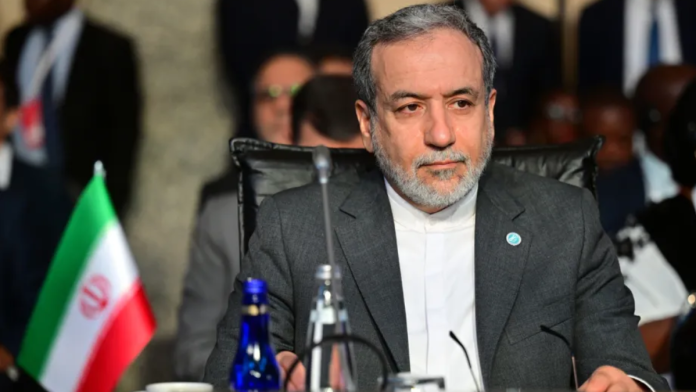Iran’s Foreign Minister, Abbas Araghchi, has sent urgent messages to Sri Lanka and the Maldives, urging both nations to oppose sanctions imposed by the United States and its Western allies. According to Iran’s ambassador in Colombo, Alireza Delkhosh, the letters highlighted concerns that these sanctions could weaken international law and set a dangerous precedent for other countries.
Araghchi’s messages emphasized that the issue is not only about Iran. They stated that today it is Iran facing restrictions, but tomorrow it could be other countries, including those in South Asia and Africa. The letters suggested that allowing sanctions to continue without resistance could make international rules appear fragile and ineffective.
The letters described the sanctions as a challenge to the credibility of global law. Araghchi called on Sri Lanka and the Maldives to resist pressure from Western countries and defend the dignity of international law. He warned that treating international law as a political tool is dangerous and could have long-term consequences for countries around the world.
America triggers UN ‘snapback’ — Iran’s nuclear ambitions hit with fresh global sanctions
Recent Sanctions and International Response
The letters come after the United Nations reimposed sanctions on Iran through a mechanism called “snapback.” The process was triggered by Britain, France, and Germany, who argued that Iran had failed to meet its commitments under the 2015 nuclear agreement. These sanctions targeted Iran’s nuclear and ballistic programs and included measures that had previously been lifted, such as bans on oil exports, banking, transport, and energy trade.
Following the UN actions, the European Union reinstated strict sanctions. The EU said that Iran had breached the terms of the nuclear deal and that its stockpile of enriched uranium had exceeded agreed limits. These measures are intended to prevent Iran from advancing its nuclear and missile programs.
EU unleashes historic crypto crackdown—digital currency ban hits Russia’s war chest
Meanwhile, the United States also increased pressure by imposing sanctions on 38 individuals and companies in Iran and China. According to the U.S. Treasury Department, these groups supplied Iran’s military with missiles, helicopter parts, and other technologies. The U.S. described these sanctions as a way to enforce international restrictions and stop Iran from acquiring advanced military technologies.
Iran has strongly rejected the return of UN sanctions. The country described these measures as illegal and said they carry no obligations for other nations. According to the Iranian Foreign Ministry, any attempt to reapply old resolutions that ended in 2015 is invalid and has no legal effect.
Iran’s Call to Other Nations
In the letters, Araghchi stressed that the situation is a test for global law and the fairness of international rules. He urged Sri Lanka and the Maldives to resist pressure from Western powers and take a stand. Araghchi warned that ignoring this moment could make international rules appear weak and allow stronger countries to impose restrictions without accountability.
Iran nuclear deal crisis deepens as UN Security Council blocks sanctions relief extension
According to Ambassador Alireza Delkhosh, supporting Iran’s position is not only about helping one nation but also about protecting the credibility of international law. The letters suggested that smaller countries could play an important role in defending global fairness and preventing powerful countries from acting without consequences.
The messages were delivered as part of Iran’s broader diplomatic efforts to rally international support against what it calls “unjust sanctions.” By reaching out to Sri Lanka and the Maldives, Iran is seeking to show that its opposition has global backing and is not limited to just a few nations.
The situation highlights ongoing tensions between Iran and Western countries over nuclear programs, sanctions, and international rules. It also highlights the role that smaller nations can play in influencing global decisions and defending international law.


